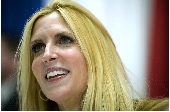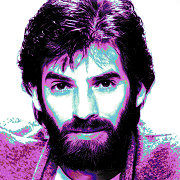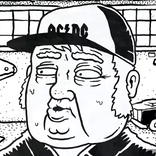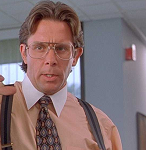|
If that guy came out of his house guns blazing for no good reason then he's a danger to society and should be locked up and defense of property should never be a justifiable reason to cause someone harm but if it turns out that one of those kids was armed or acting in a way that suggested imminent bodily harm will those of you who act like rural Canadians are nothing but a bunch of evil white racists shut the gently caress up for once?
|
|
|
|

|
| # ? May 15, 2024 01:07 |
|
EvilJoven posted:If that guy came out of his house guns blazing for no good reason then he's a danger to society and should be locked up and defense of property should never be a justifiable reason to cause someone harm but if it turns out that one of those kids was armed or acting in a way that suggested imminent bodily harm will those of you who act like rural Canadians are nothing but a bunch of evil white racists shut the gently caress up for once? Completely separate from this shooting, the thing is that, yes, rural Canadians are pretty racist. The thread hivemind isn't wrong. Now, not all of them/us are, but an awful lot for sure. The part that is lol about these accusations, though, is the implication that Canadian cities themselves aren't strife factories in their own special and unique ways.
|
|
|
|
EvilJoven posted:rural Canadians are nothing but a bunch of evil white racists Agreed.
|
|
|
|
.
Legit Businessman fucked around with this message at 19:37 on Sep 9, 2022 |
|
|
|
EvilJoven posted:If that guy came out of his house guns blazing for no good reason then he's a danger to society and should be locked up and defense of property should never be a justifiable reason to cause someone harm but if it turns out that one of those kids was armed or acting in a way that suggested imminent bodily harm will those of you who act like rural Canadians are nothing but a bunch of evil white racists shut the gently caress up for once? Can I still hate them for having way too much political power relative to their population?
|
|
|
|
Biting down on these barbs.
Somebody fucked around with this message at 21:09 on Sep 9, 2022 |
|
|
|
CLAM DOWN posted:Agreed. Maybe compared to urban Canadians but on a global scale all Canadians (including our rural residents )are not very racist.
|
|
|
|
EvilJoven posted:If that guy came out of his house guns blazing for no good reason then he's a danger to society and should be locked up and defense of property should never be a justifiable reason to cause someone harm but if it turns out that one of those kids was armed or acting in a way that suggested imminent bodily harm will those of you who act like rural Canadians are nothing but a bunch of evil white racists shut the gently caress up for once? No, that would only mean the accused is probably not a huge racist. We'd still have to address some of the crazy racist things said and done by other people in the aftermath of the incident.
|
|
|
|
zapplez posted:Maybe compared to urban Canadians but on a global scale all Canadians (including our rural residents )are not very racist. [Citation Needed]
|
|
|
|
PK loving SUBBAN posted:[Citation Needed] I mean, that's a pretty straight forward statement. Racism is inversely linked to education and wealth. Canada is part of the small community of first world countries. Most of the planet is poor and uneducated so more prone to label other people by race. It's not complicated but it is a silly comparison. Premier Wynne may very well be a top 10 percentile politician when you compare her to all national and subnational leaders globally. You can make anything look awesome if you throw enough poo poo into the comparison group.
|
|
|
|
Rural Canadians are racist as gently caress against everyone except WASPs, urban Canadians are racist as gently caress against natives.
|
|
|
|
cowofwar posted:Rural Canadians are racist as gently caress against everyone except WASPs, urban Canadians are racist as gently caress against natives. And everyone seems to hate The French
|
|
|
|
Ikantski posted:I mean, that's a pretty straight forward statement. Racism is inversely linked to education and wealth. Canada is part of the small community of first world countries. Most of the planet is poor and uneducated so more prone to label other people by race. It's not complicated but it is a silly comparison. Premier Wynne may very well be a top 10 percentile politician when you compare her to all national and subnational leaders globally. You can make anything look awesome if you throw enough poo poo into the comparison group. Nice dog whistle white supremacy.
|
|
|
|
.
Legit Businessman fucked around with this message at 19:37 on Sep 9, 2022 |
|
|
|
Yorked again!
Somebody fucked around with this message at 21:09 on Sep 9, 2022 |
|
|
|
Ikantski posted:Why would he be driving up the guy's driveway with a blown out tire, that'd gently caress up the rim pretty bad? The kids drive up the driveway for some reason, guy asks them to leave, kids won't leave, old guy goes and gets his gun, kid tries to back out but puts it in forward instead, guy shoots in self defense. Hmm I wonder what someone would do when their vehicle has a blown out tire and needs help? It's likely they drove it looking for help to fix their blown out tire. I wonder why they wouldn't leave, especially since their vehicle had a blown out tire.
|
|
|
|
Osgoode is a nice sounding name to have on your piece of paper, I have to admit. It just rolls off the tongue well. It makes me think about how much education is brand instead of substance, though.
|
|
|
|
PK loving SUBBAN posted:[Citation Needed] Literally travel to another country, like anywhere in Europe, and you will see how blandly and tamely not racist Canadians are in comparison. Get some perspective, see the world, hate it all!
|
|
|
|
PK loving SUBBAN posted:[Citation Needed] Just one example but I'm sure you have heard research like this before. On the world stage Canada has been known as a fairly progressive cultural mosaic and tolerant country. https://www.washingtonpost.com/news/worldviews/wp/2013/05/15/a-fascinating-map-of-the-worlds-most-and-least-racially-tolerant-countries/ I'm not sure what groups you encounter day to day in Canada but in my experience in Ontario , both city suburban and rural the large majority I meet are much more likely to judge you based on what hockey team you support rather than your skin colour. That's not to say the country is without sin when it comes to discrimination. I don't think anyone would argue there was institutional racism in the country's history. But overall, as good as humans can be with our biases, we are doing well on a global scale. vincentpricesboner fucked around with this message at 16:26 on Aug 19, 2016 |
|
|
|
zapplez posted:Just one example but I'm sure you have heard research like this before. On the world stage Canada has been known as a fairly progressive cultural mosaic and tolerant country. Wow, you do a pretty good job of imitating your avatar's particular brand of pointless pablum.
|
|
|
|
That same metric paints Australia as the same non-racist color as Canada, and ask them about boat people and their boat people rape camps.
|
|
|
|
Wow it's almost as if human beings are just another branch on the ape section of the evolutionary tree and by nature extremely wary of members of a different troop and this instinct manifests in ways that are sometimes harmful to our own society because as a species that can travel half way around the globe in a day the concept of who is or isn't a member of an individuals troop is now extremely nebulous. Maybe one day our society will come to terms with the fact that at the core while we have a high level of self awareness we're all still literally animals so we can find realistic ways to deal with this effectively so we can stop being such shits to each other.
|
|
|
|
canada is just as racist as anywhere else, it's just expressed in hilariously passive aggressive ways for the most part
|
|
|
|
Canada isn't racist, its just that SOME PEOPLE need to pull up their bootstraps and work as hard as the rest of us.
|
|
|
|
Canada is a single famine away from being just as explicitly racist as anywhere else. The entire premise of Canada was - and remains - an inherently colonial and racist concept and you aren't gonna change the song if you don't change the band. Take away someone's safety and the other is gonna get strung up in an awful hurry. Again.
|
|
|
|
Stickarts posted:Canada is a single famine away from being just as explicitly racist as anywhere else. The entire premise of Canada was - and remains - an inherently colonial and racist concept and you aren't gonna change the song if you don't change the band. "We gave the Chinese their head tax money back and now they have hosed up our country."
|
|
|
|
Stickarts posted:Canada is a single famine away from being just as explicitly racist as anywhere else. The entire premise of Canada was - and remains - an inherently colonial and racist concept and you aren't gonna change the song if you don't change the band. If you actually unironically think this I question if you've ever left the country.
|
|
|
|
CLAM DOWN posted:If you actually unironically think this I question if you've ever left the country. Lived as a very visible minority for years in a former slave colony. If you'd like to have a conversation about this topic I am all ears though.
|
|
|
|
Countries I've been to: 7 Countries where I haven't heard a lot of racist comments about certain groups of people: 0 Racism isn't a Canada problem it's a human problem.
|
|
|
|
EvilJoven posted:Wow it's almost as if human beings are just another branch on the ape section of the evolutionary tree and by nature extremely wary of members of a different troop and this instinct manifests in ways that are sometimes harmful to our own society because as a species that can travel half way around the globe in a day the concept of who is or isn't a member of an individuals troop is now extremely nebulous. Yeah pretty much. Trouble is walking down this road of biological determinism gives us eugenics (again).
|
|
|
|
I'd actually say some sort of genetic engineering that tweeks some of our us vs them criteria a bit is probably our only hope in the long run. Eventually we'll hit a wall where society can only improve us so much, and our amazing star trek utopia will always be one disaster away from descending into brutal fascism or tribalism.
|
|
|
|
EvilJoven posted:Countries I've been to: 7 uh, yeah, that's the point. No one is saying Canada is the most racist by any means, just that we have a gently caress ton of racists. You may notice that "Canadians" qualify as a subset of "humans"? However, I do think if we're going to jerk ourselves off so hard that we break our arms about being a "multicultural society" we might want to start addressing systemic racist issues and hold ourselves to a higher standard as a nation. At least Britain have the balls to shoot themselves in a face on a world stage because they don't like foreigners. The "shhhh we don't talk about Canadian racism because it's icky," mentality is loving infuriating. peter banana fucked around with this message at 17:47 on Aug 19, 2016 |
|
|
|
Stickarts posted:Lived as a very visible minority for years in a former slave colony. I actually would but preferably not publicly. I witnessed an extreme amount of racism while travelling in some parts of the world, compared to home.
|
|
|
|
CLAM DOWN posted:I actually would but preferably not publicly. I witnessed an extreme amount of racism while travelling in some parts of the world, compared to home. Fair enough. I will also admit I am being pithy for the sake of brevity/wit. Canada has some extremely foundational, festering problems wrt race and no real interest in dealing with it in any real way. That being said, we also aren't hacking the genitals and limbs off of our neighbouring tribes for speaking a slightly different dialect. I guess I find the dominant narrative of Canada as this multicultural wonderland mostly serves to whitewash and flatten an extremely complex and dark history. This grand narrative in fact inhibits any real attempts to address the underlying causes of the deeply institutionalised racism of Canada. If you are interested in exchanging stories through more private avenues, I would be happy to. I don't have pm, though. e. Peter Banana kinda beat me to it.
|
|
|
|
This is switching gears back to something the thread was gnawing on a day ago but I think this article is a reasonably good summation of why the 'PM Selfie' label has stuck. Because anyone not enamored with Trudeau has at least intuitively picked up on the fact that his media strategy is probably the only genuinely innovative thing about our new Prime Minister. quote:Contrast Between Photo-Op Justin And Policy Trudeau Is Night And Day I tend to think that Trudeau is better than Harper if only because he isn't on an intentional mission to sabotage the federal government, and because he's somewhat better on climate change, but politically speaking him and Harper are part of the same centrist blob which has absorbed all three major parties. But then I find myself reconsidering that because with Harper his political future always balanced on a knife's edge and the moment he got his majority and started implementing a more muscular conservative agenda he was already on track to lose. Now Trudeau is pursuing many similar policies (minus the war on the federal bureaucracy or the utter refusal to make token gestures toward environmentalists or natives or whomever else) but getting massive and enthusiastic support for them. This is all familiar ground at this point and I don't think it's a revelation to anyone but perhaps it's helpful to state the argument as simply as possible. While Trudeau may not be as bad as Harper in every particular, there are some areas where he's actually worse, for instance: quote:Ottawa rewrites mandate for screening arms exports
|
|
|
|
Helsing posted:... In what ways do you consider that to be true? The big accolades Trudeau won for Canada's targets at COP 21 were set by the previous government, and under the LPC, Canada pushed for COP21 targets to be non-binding.
|
|
|
|
Guy actually appears in public, talks to people, and answers questions that his minions haven't scrutinized beforehand. It only seems "innovative" because for 12 years we had a PM who despised the public and had himself ferried around in an armoured motorcade.
|
|
|
|
And while I'm dumping articles, here's another irritating thing about Trudeau. At the same time that the Toronto Star was running an article on why gawking at his shirtless pictures should be a national past time scientists were determining that July was the hottest month on record for the entire planet. When you look back decades later at a catastrophic event you don't really notice which negligent leader was slightly better or slightly worse. When historians try to evaluate the performance of the last few American Presidents before the Civil War they can agree that Mallard Filmore was better than James Buchanan, but all that's really remembered about either man is that they weren't up to the task of preventing the fast approaching disaster which they should have seen coming. Likewise, when historians look at how the British government in the 1930s was dealing with the rising threat of Germany the different behaviours of Stanley Baldwin vs. Nevile Chamberlain just doesn't stand out that much in retrospect. What we remember is that they both were inadequate for the tasks history set before them. So keep in mind that the Prime Minister marching in a pride parade might give you some warm fuzzies, and yes it probably does a bit of good in legitimizing and mainstreaming gay right and culture, but he's basically just minding the shop, not making any big moves, and thus sitting and twiddling his thumbs as the status quo is beginning to collapse. His moderate and cautious governance will look very different in retrospect. quote:Bracing Ourselves for the Climate Tipping Point And just to round things out, let's remember Trudeau's team is unambigously quite conservative on economics. Yes, they believe in (poorly targeted) Keynesian pump priming (mostly, it seems, as an excuse to distribute pork projects to key ridings) but in every particular Trudeau's economic ideology and major policy tools are the same ones that Harper (or, sigh, Mulcair) used. Whether or not you blame him for that, it means that the only long term available response to the collapse of the housing bubble will be belt tightening and austerity. quote:Canada's 'Housing Bubble' Is 'Going To End In Tears': Capital Economics This is already an overly long post so I won't go into a rant about how Trudeau's party holds a lot of responsibility for this situation but the tl;dr version would be that Trudeau, a lot like Obama, is way too deeply invested in the reigning status quo to either perceive the scope of this problem or to take adequate measures to fix it. The kind of basic and universally available social programs that were constructed during the mid-20th century and which have to date been the only system of economic arrangements that every produced a sustainable middle class and (very flawed, but at least aspiring) egalitarian economy are anathema to a guy who loves means testing and who appoints Bill Morneau of the C.D. Howe institute as his top economic policy guy.
|
|
|
|
Fluffy Chainsaw posted:In what ways do you consider that to be true? The big accolades Trudeau won for Canada's targets at COP 21 were set by the previous government, and under the LPC, Canada pushed for COP21 targets to be non-binding. He's better in ways that I don't think will matter too much in the grand scheme of things a few decades hence but which are still worth acknowledging, if only to avoid getting entangeld in a thoroughly irrelevant argument about whether Harper and Trudeau are the "exact same" or whether they are merely "very similar". Harper did some utterly heinous stuff like restricting any public communication whatsoever from federal scientists and the Trudeau government has relaxed those restrictions. Harper had a very keen understanding of how the federal government's ability to report on problems plays a crucial part in shaping the progressive political agenda. By poking the eyes out of agencies that monitor everything from climate to poverty to crime (think of his utter refusal to set up an inquiry into missing Native Women) he was trying to starve progressive causes. He understood that information is like oxygen for progressive institutions, and if you limit the supply of that oxygen then you can kill or weaken everyone who depends on it. Similarly, I don't think Trudeau has continued Harper's attempts to remove charitable status from environmental activists.
|
|
|
|

|
| # ? May 15, 2024 01:07 |
|
Helsing posted:He's better in ways that I don't think will matter too much in the grand scheme of things a few decades hence but which are still worth acknowledging, if only to avoid getting entangeld in a thoroughly irrelevant argument about whether Harper and Trudeau are the "exact same" or whether they are merely "very similar". Helsing, we know that this isn't true. We had this discussion just a couple weeks ago. https://twitter.com/davidakin/status/762701971354550272 "... documents tabled by Liberal ministers in the House of Commons indicate the communications policies for scientists of the previous government -- policies widely criticized by scientists themselves who felt "muzzled" -- remain in place despite the change in government." Communications policies Trudeau - https://t.co/2ynXbzSH1K Harper - https://t.co/BrVq5R9GfM David Akin posted:Basically the same: “Experts” can speak about their work; they can’t speak about policy with approvals. E: The CRA is continuing with 24 charity audits.
|
|
|









































